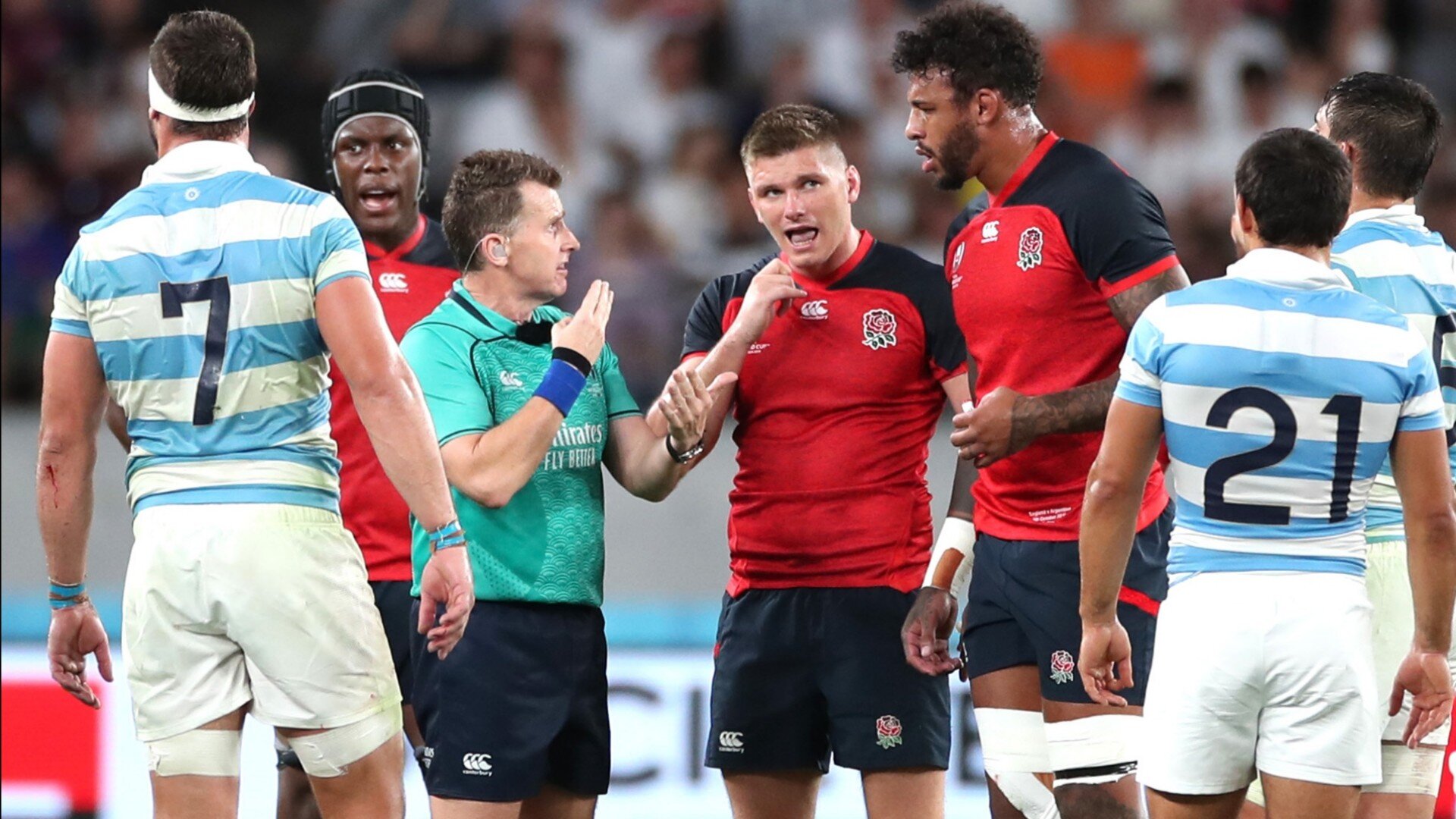Favourites emerge in race to referee Rugby World Cup Final

Plenty of rugby fans – especially those of an English persuasion – will recall that Andre Watson was the man in the middle on that memorable 2003 Sydney evening when Jonny Wilkinson dropped for Rugby World Cup glory.
Fewer will remember that the South African official was also in charge in Cardiff four years earlier when an outstanding Australian side lifted the Webb Ellis Cup with an easy win over France.
Watson is the only man to have controlled two finals, while his fellow countryman Craig Joubert, Australia’s Kerry Fitzgerald, England’s Ed Morrison, Ireland’s Alain Rolland plus Wales’ Derek Bevan and Nigel Owens join him on the most elite of all refereeing honours boards.
With Owens among Japan 2019’s 12-strong panel of officials, Watson’s record is under threat. But as the pool stages draw to a conclusion, how likely is the West Walian to take a step into the history books?
Based on recent tournaments, three of the officials appointed to the quarter-finals go on to take charge of the semi-finals and final. Four years ago, 2011 final ref Joubert was the odd man out after being at the centre of Scotland’s controversial last-eight defeat by Australia.
After Owens initially missed it, with the TMO's help Lavanini was rightfully red-carded, but what about England's illegal infringements? #ENGvARG #RWC2019 https://t.co/iR89THFG7v
— RugbyPass (@RugbyPass) October 5, 2019
This left Wayne Barnes and Jerome Garces to oversee the final four ties, and along with Owens, England and France’s No.1 whistlers are again very much in the running to control the 2019 final.
While all 12 officials in action in Japan are theoretically in contention to referee knock-out ties, in practice World Rugby will opt for proven performers from the last four years. The governing body’s hands are also tied by the identity of the qualifying nations since all appointments are made on a neutral country basis.
Those officials whose international whistling careers are less well-established are therefore unlikely to get their first taste of refereeing the business end of the tournament before France 2023. England’s Luke Pearce drops into this category as do Pascal Gauzere and Mathieu Raynal of France, Kiwis Paul Williams and Ben O’Keefe and Australia’s Nic Berry.
Of the remaining six officials, clues regarding World Rugby’s pre-tournament thinking can be found by analysing pool stage appointments. Of the 40 matches which take place prior to the quarter-finals only eight are between tier one nations. These high-profile ties carry the highest ‘cock-up’ potential and are therefore given to those officials viewed as being at the top of the pecking order.
Fans split over Lavanini red card.
One fan seems to think Neil Jenkins ruined the game? ?#ENGvARG #RWC?? pic.twitter.com/ocm5wUpP07
— RugbyPass (@RugbyPass) October 5, 2019
Garces, Barnes and Owens handle four of these matches between them, while the 2015 final ref was also given the pressurised opening match between Japan and Russia which will have drawn a big TV audience.
This leaves Jaco Peyper, Romain Poite and Angus Gardner with one big match apiece, while the less experienced Pearce handles New Zealand v Italy – likely to be the least competitive contest between tier one nations.
In cutting the quarter-final shortlist to four, performance during the tournament will be World Rugby’s final and most crucial determining factor. In this respect, Australian Gardner’s display during France’s defeat of Argentina may have placed him under the microscope, although his subsequent handling of Japan’s landmark win over Ireland was solid.
Similarly, Poite’s reluctance to issue two Samoans with what the citing officer later ruled as red cards during their win over Russia was then balanced by his calm and accurate display during Wales’ defeat of Australia – despite what Michael Cheika’s post-match rant suggested.
Great scenes as @AllBlacks and @RugbyNamibia thank crowd with respectful bow #NZLvNAM #RWC2019 pic.twitter.com/M4NvAvP7Ws
— Rugby World Cup (@rugbyworldcup) October 6, 2019
Four years on, I can therefore see a Springbok switch, which installs Peyper for the now-retired Joubert, being the only change made to the quarter-final line-up which took the field in England 2015. My possible bolter is Williams who has really impressed in his first two outings.
Looking a fortnight further ahead, I simply cannot imagine Owens’ supreme management skills not being in the team-of-three which controls the final. Whether his 48-year-old legs are now sharp enough to allow him to referee is a live question – and for this reason the supremely consistent Barnes may edge the selection verdict, assuming England are not part of the four-yearly showpiece.
Watch: RugbyPass gets a taste of Japanese culture.

















































